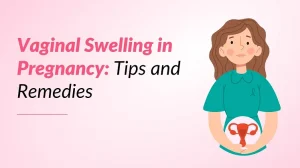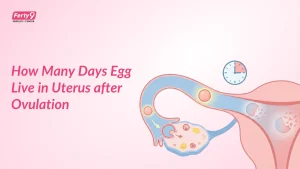Fertility treatment can often be a source of significant anxiety for a couple, stemming from concerns about the invasive nature of procedures and uncertainty regarding what to expect during treatment. The effects of this concern on the body and mind might influence the results of reproductive treatments. However, it is well recognized that therapeutic music may effectively divert attention from anxieties and pains, promoting relaxation and the release of hormones that affect mood through the parasympathetic nervous system.
Related read: Can Music Help IVF Embryo Implantation?
What is Music Therapy?
Music therapy is a supplemental therapy used in a variety of medical specialties. Music therapy is a therapeutic practice that employs music to meet people’s physical, emotional, cognitive, and social needs. Research demonstrates that therapeutic music may reduce stress, enhance mental state, and promote general well-being, making it effective for a number of diseases, including anxiety, depression, and chronic pain. This holistic method leverages the emotional power of music to promote healing and increase quality of life.
What is the Emotional Impact of Fertility Challenges?
Fertility issues can have a significant emotional impact on individuals and couples, resulting in feelings of anxiety, worry, and stress. Many people experience grief and loss as a result of their failure to conceive naturally, which can impair self-esteem and cause an inferior feeling. Social isolation can also arise, as people dealing with reproductive challenges may feel misunderstood by friends or relatives who do not share their concerns. Furthermore, the financial and physical challenges of reproductive treatments can aggravate mental stress.
Stress and Anxiety
Stress and anxiety are frequent during fertility treatments, sometimes caused by the mental and physical demands of procedures such as IVF. Uncertainty and repeated cycles can cause emotional exhaustion. Financial difficulties and the fear of failure contribute to increased stress, which may negatively impact treatment success and general well-being. Anxiety and depression can contribute to infertility, and the discomfort of infertility and treatment frequently leads to anxiety and depression.
Feelings of Isolation
While having reproductive issues, individuals and couples may experience feelings of isolation and loneliness due to a lack of understanding from others. Many people resist expressing their experiences for fear of being judged or misunderstood, leading to mental trauma. Social events, particularly those involving children or pregnancies, may significantly heighten these sentiments, generating more emotional isolation.
Grief and Loss
During reproductive issues, people often suffer grief and loss as they struggle to conceive naturally or after failed treatments. This grieving might feel like losing a prospective future, leading to profound sorrow, hopelessness, and feelings of failure.
Also read: How IVF Have Brought Joy to Grieving Parents
Frustration and Anger
Frustration and anger are normal emotional responses during reproductive treatments, sometimes caused by unsuccessful cycles or unpredictable outcomes. The inability to regulate one’s body might cause mental distress. These sentiments can also originate from comparisons with those who conceive effortlessly, adding to the sense of hatred.
Impact on Relationships
Fertility issues and treatments, such as IVF, can have a substantial influence on relationships, causing stress, frustration, and emotional disconnect between couples. The challenge of trying to conceive and the emotional toll of recurrent failures may cause tensions or feelings of isolation within the couple. Financial hardship, communication breakdown, and conflicting coping styles can cause significant rifts between you and your partner.
Also read: How Counselling Helps Couples Dealing with Infertility
Benefits of Music Therapy for Fertility
Music therapy is a science that uses music and music-related activities to address people’s physical, psychological, social, and mental needs. Therapeutic music can lower a patient’s anxiety and stress, alleviate pain, affect a variety of physiological indicators, and enhance the quality of life.
Music Therapy for Mental Health
Music therapy for mental health is an excellent method as it promotes emotional expression and relaxation, hence lowering stress, anxiety, and depression. Participating in musical activities, such as listening and playing instruments, can promote the mental wellbeing. Mindfulness-based music therapy blends mindfulness concepts with musical involvement to assist people improve their emotional awareness, reduce tension, and promote relaxation.
Music Therapy for Depression
Music therapy for depression may be extremely successful because it uses rhythm, melody, and harmony to help people express suppressed emotions and relieve tension. It promotes emotional healing by engaging both the mind and the body, lowering depressive symptoms through the release of dopamine, the “feel-good” neurotransmitter.
Music Therapy for Stress Management
Music therapy for stress management can be effective by reducing cortisol levels and fostering relaxation and emotional equilibrium through calming rhythms and melodies.. Furthermore, music therapy enhances self-expression, which aids in processing emotions.
Additionally, music relaxes stress, contributing to an overall sense of well-being. Listening to fertility music may generate a state of peace that enhances mental well-being and decreases stress, making it an advantageous habit for those undergoing fertility treatments.
Facilitates Connection and Support
Music therapy creates shared experiences, such as group sessions or collaborative music-making, to develop emotional bonding and connection. It gives a nonverbal channel for expression, allowing individuals to connect with others through shared feelings and experiences. This can help establish relationships, lessen feelings of isolation, and provide emotional support in a safe, therapeutic atmosphere.
Improves Sleep Quality
Music may be an excellent aspect of good sleep hygiene. Music therapy can enhance sleep quality by encouraging relaxation and lowering stress levels, which are major impediments to healthy sleep. Music therapy for stress and anxiety effectively uses rhythmic and melodic music to encourage relaxation, emotional expressiveness, and general mental well-being. Listening to peaceful, slow-tempo music before bed can drop heart rate and blood pressure, making it easier to fall and remain asleep. It can also help regulate mental state, which adds to improved sleep patterns and general sleep hygiene.
Ferty9 Tune’s Specific Approach to Music Therapy
Ferty9 Tune takes a unique approach to music therapy by incorporating individualized music experiences based on individual needs and preferences. Ferty9’s ‘Music of Hope‘ is a therapeutic melody designed for couples on their IVF journey. Based on Raag Yaman, it combines sacred bells, prayer bowls, tanpura, and bamboo flutes with gentle rain sounds to create a calming atmosphere. This carefully crafted composition aims to transform anxiety into serenity, promoting positivity and tranquility.
Our approach stresses music’s therapeutic effects for emotional healing, stress reduction, and overall well-being. This technique not only treats emotional well-being but also promotes social engagement, which improves the whole therapeutic experience.
Related read: How Ferty9’s Fertility Counseling Services Address Your Specific Needs?
Tips for Incorporating Music Therapy into Your Fertility Journey
To incorporate music therapy into your reproductive journey, start by looking for music therapists or online platforms that provide guided sessions for stress management and emotional support. Create a bespoke playlist of peaceful Indian classical music or instrumental music to reduce anxiety during treatment. Finally, attend group music therapy or meditation sessions, which are frequently accessible at fertility centers or health clinics throughout India.
Find Hope and Solutions for Female Infertility and Male Infertility — Explore Our Comprehensive Services
IUI Treatment
ICSI Treatment
PICSI Treatment
Fertility Preservation Service
Blastocyst Culture & Transfer Treatment
Genetic Screening & Testing
Conclusion
Music therapy can improve your reproductive journey by lowering stress, encouraging emotional well-being, and increasing relaxation during treatments. Music therapy also fosters emotional connections with spouses and healthcare providers, enhancing communication and support. It promotes a comprehensive approach to reproductive care by integrating calming sounds and therapeutic procedures, therefore improving both physical and mental wellness. Finally, music therapy can provide a supportive setting for a more favorable conception experience.





























